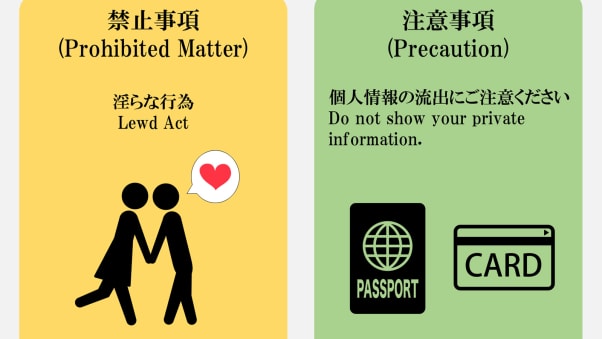The $1 Hotel Where Privacy Isn’t Included
The Japanese city of Fukuoka is the nation’s sixth largest, with about 1.6 million residents in the city itself and nearly another million living in the greater metropolitan area. In a typical year, more than two million other people visit the city, and as you can imagine, there are lots of hotels. You can find rooms for as low as $30-something dollars and if you want to splurge, there are some $150+ options. And then there’s the Business Ryokan Asahi, which, as recently as 2019, offered a room for 100 yen — at the time, about one U.S. dollar.
The catch? You’re on camera. The entire time. And the whole world can watch.
A ryokan is a type of traditional Japanese inn that, in appearance, suggests that they are budget accommodations. A typical ryokan guest room features a matted floor with a small table for tea and a futon for sleeping — and that’s basically all. There’s not even a bathroom; guests use communal restrooms in each hall. The design isn’t intended to be frugal, though. Ryokans date back well more than a millennium (see today’s bonus item for more on that) and at the time, private quarters were a luxury seldom seen.
Today, though, you can imagine why the experience may not be as appealing to travelers who expect their own showers and to not to have to sleep on what is, ultimately, a mattress on the floor. When 27-year-old Tetsuya Inoue took over management of the hotel — it’s owned by his grandmother — he realized that business was slow. And in particular, one hotel room — room #8 — was rarely booked. (The number 8 is lucky in China, and many of Fukuoka’s tourists come from China, so maybe there’s a connection there, but I don’t see it immediately.) So he came up with an idea: rent the room for really, really cheap, and turn the deal into a publicity stunt. As he told CNN, “This is a very old ryokan and I was looking into a new business model. Our hotel is on the cheaper side, so we need some added value, something special that everyone will talk about.”
Visitors could book room #8 for that 100 yen per night price, a steep discount from the typical room price (about 3500 yen). But in doing so, they had to agree to let the world watch their every move via YouTube. That sounds like the origin story of a very different kind of business, but rest assured, Inoue wasn’t running anything of the sort. As the New York Post points out, “no nudity, sexual activity or any other ‘lewd act’ are allowed while staying in room No. 8. Guests are required to sign an ‘Accommodation Pledge’ during their stay and must get changed in the hotel’s shared bathrooms.” And Inoue took other measures to further protect the privacy of his live-streaming guests: the stream had no audio, guests were allowed to turn off the lights, and signs on the walls (below, via CNN) warn guests to keep their ID cards and other private information out of the camera’s eye.

Per CNN, the promotion was initially very popular, with four guests taking booking the room over its first month. One reddit user who took advantage of the deal had no qualms about the experience, saying that “the owner [Inoue, not his grandmother] is nice [and has] a good vibe” and the people watching and commenting on the live stream were similarly nice. Overall she described the hotel and experience as “an excellent option for budget travelers who are sick of sharing a room physically but don’t care so much about privacy.” (You can watch eight hours of her on the livestream here, but it’s probably pretty boring.)
The offer, though, no longer seems to exist. Inoue had big dreams for the idea — he saw it not only as a PR stunt but also as a future revenue stream, telling CNN that when the YouTube channel hit 4,000 subscribers, he was going to run ads. But that doesn’t seem to have come to fruition, as evidenced by the fact that the live stream no longer exists.
Bonus fact: Ryokans have been around a long time, as noted above — so long that the longest continuously-operating hotel in the world features Ryokan-style rooms. That honor, according to Guinness World Records, goes to Nishiyama Onsen Keiunkan, a hotel and spa that’s been in operation since the year 705.
From the Archives: Eggplant, Rice, Bananas and Dog Food: A much stranger example of live-streaming in Japan.
